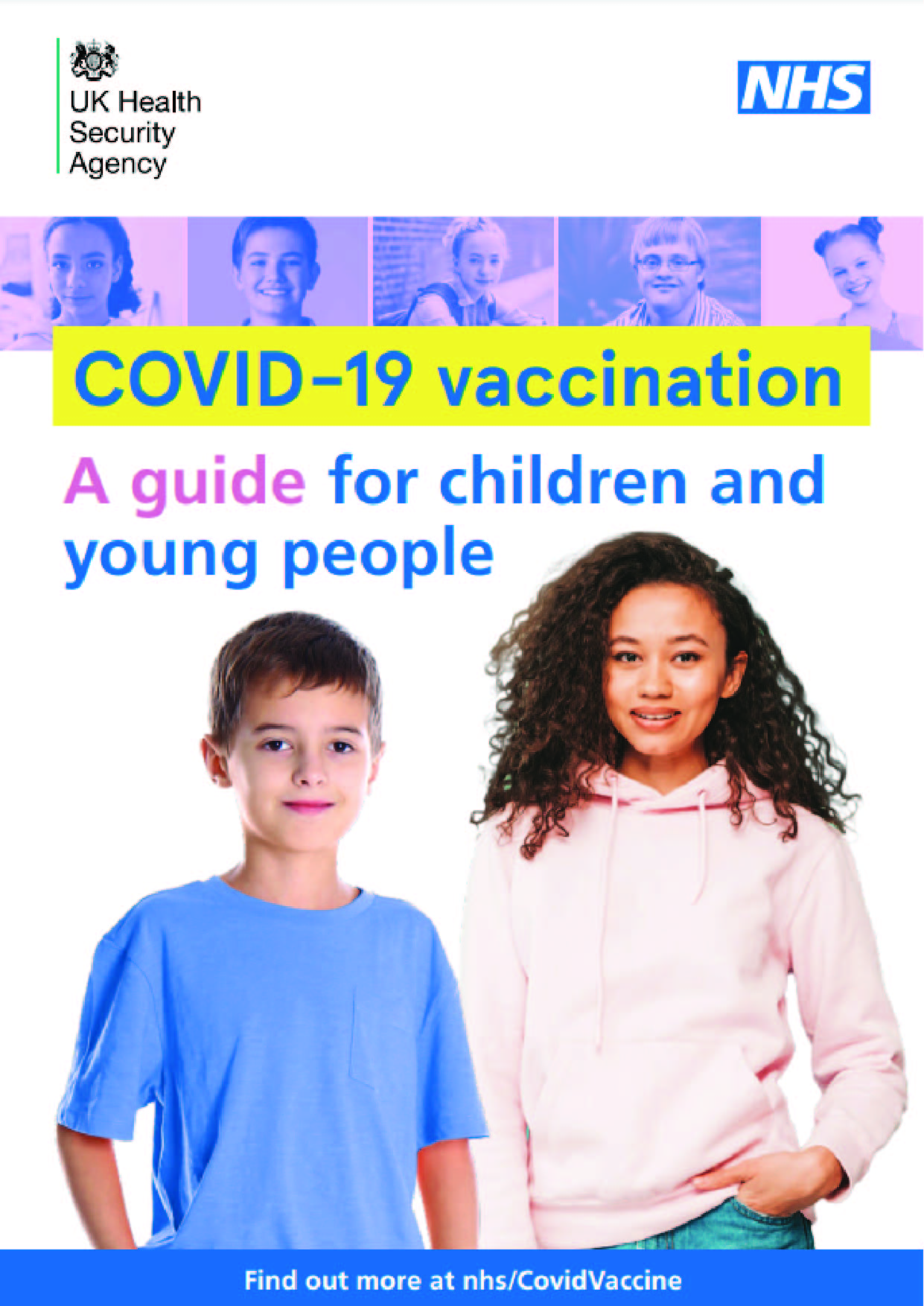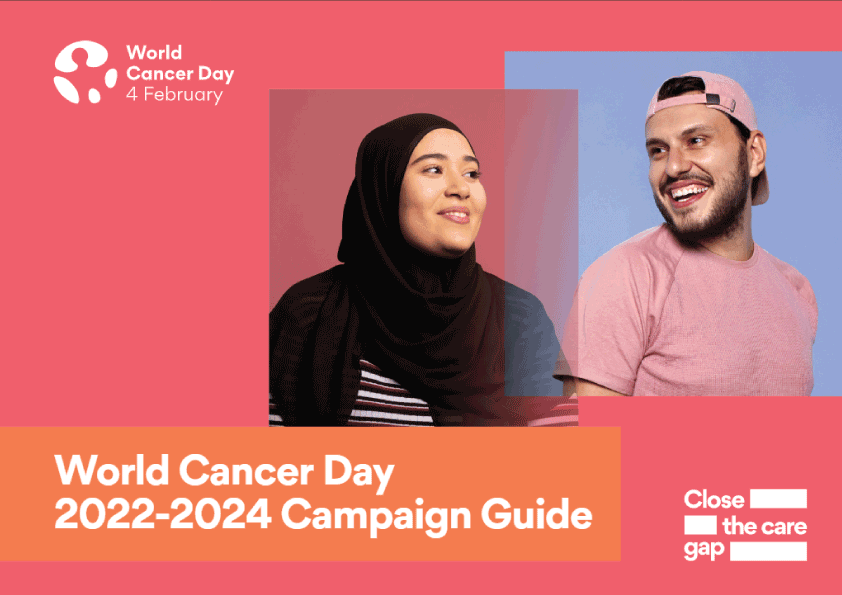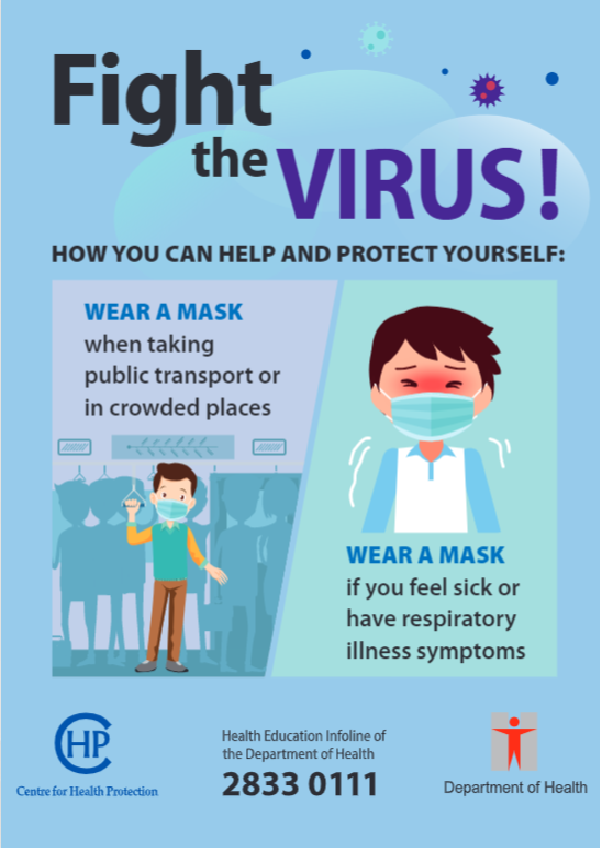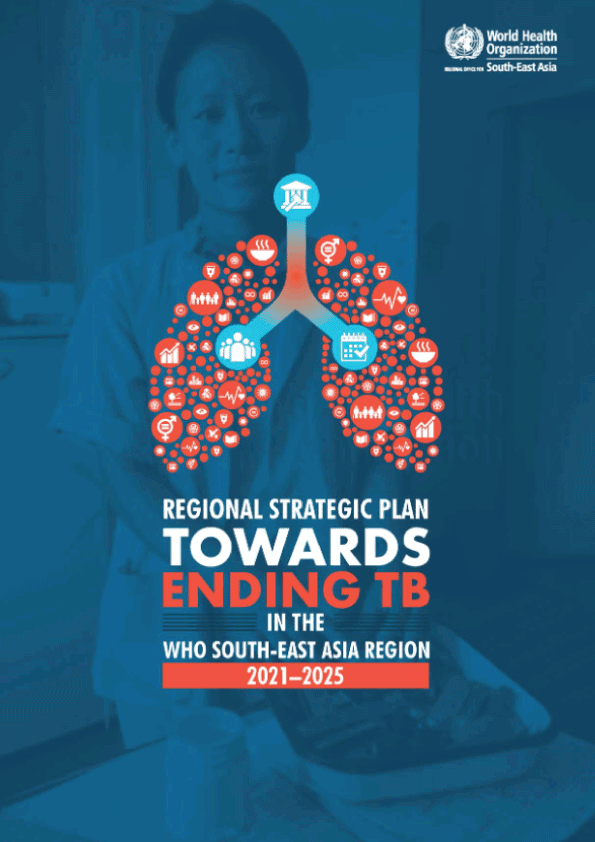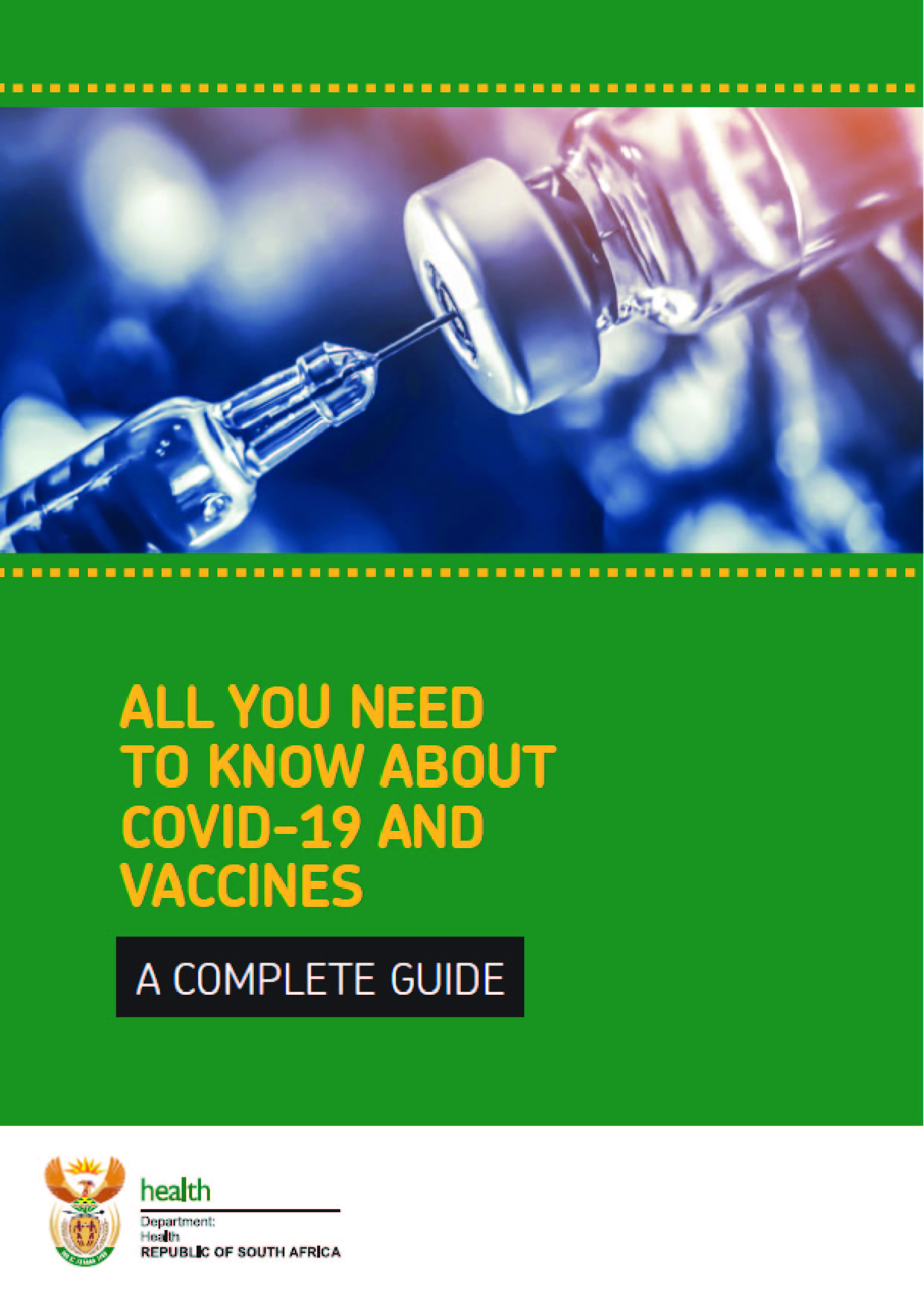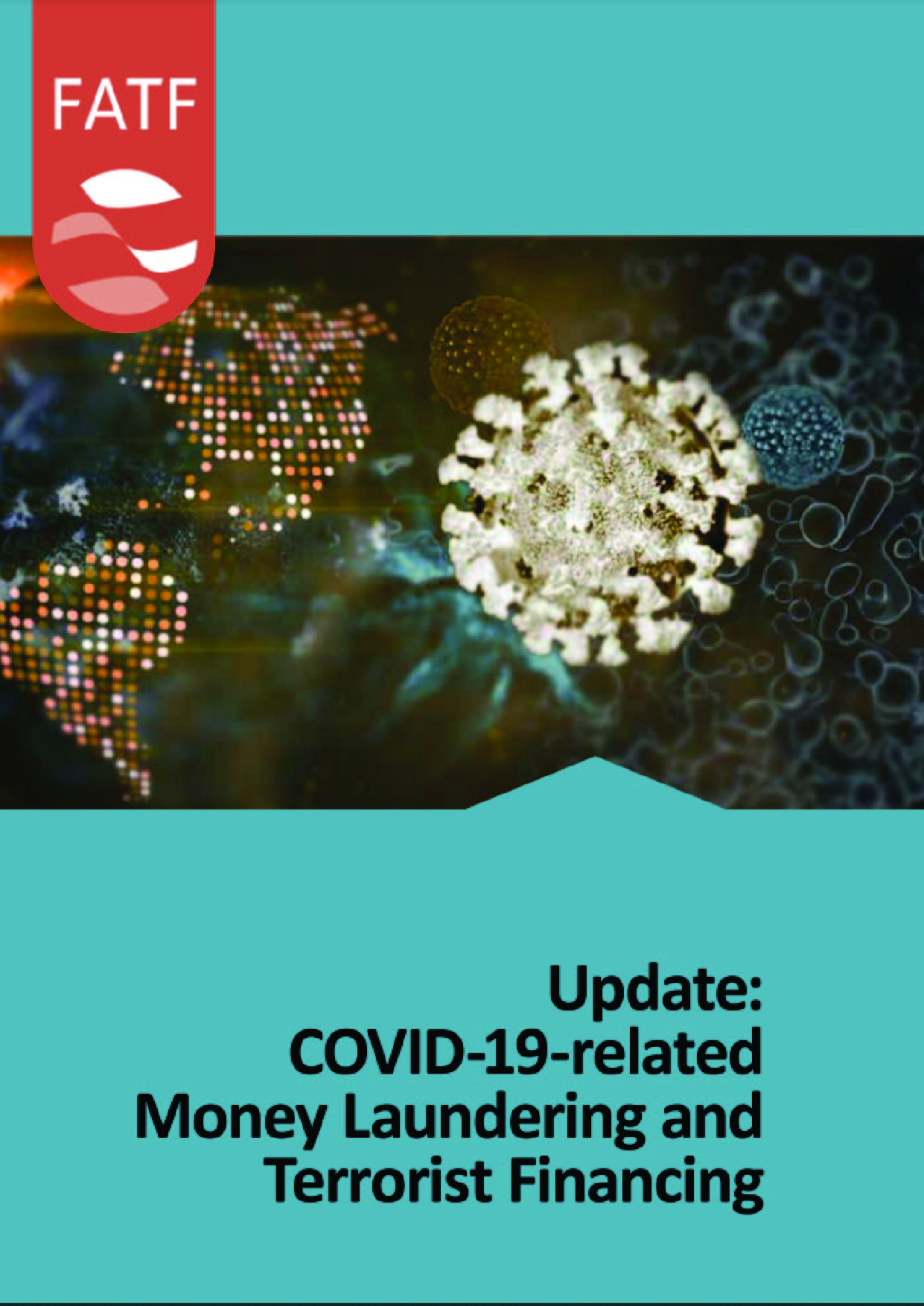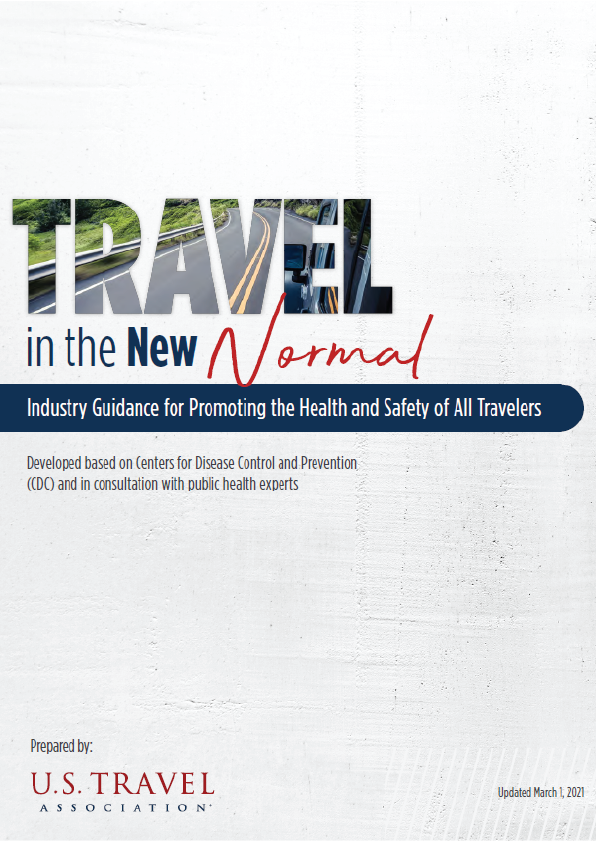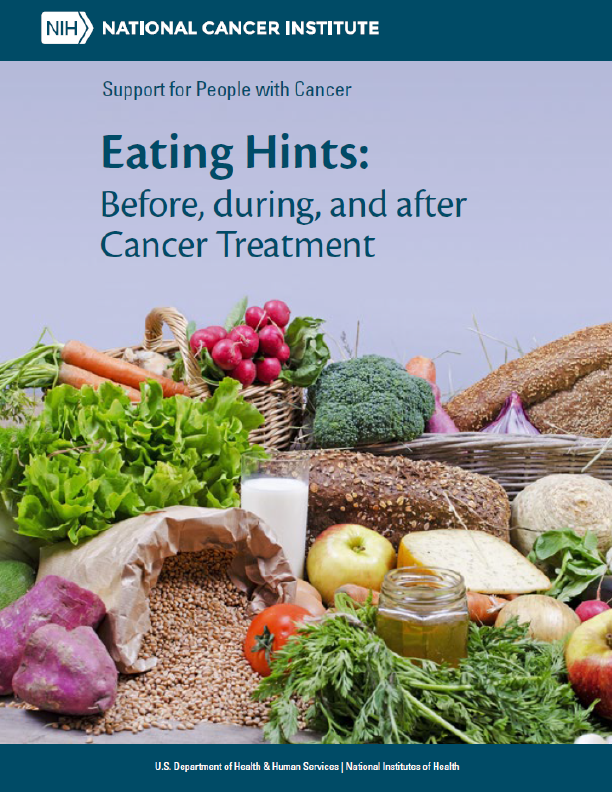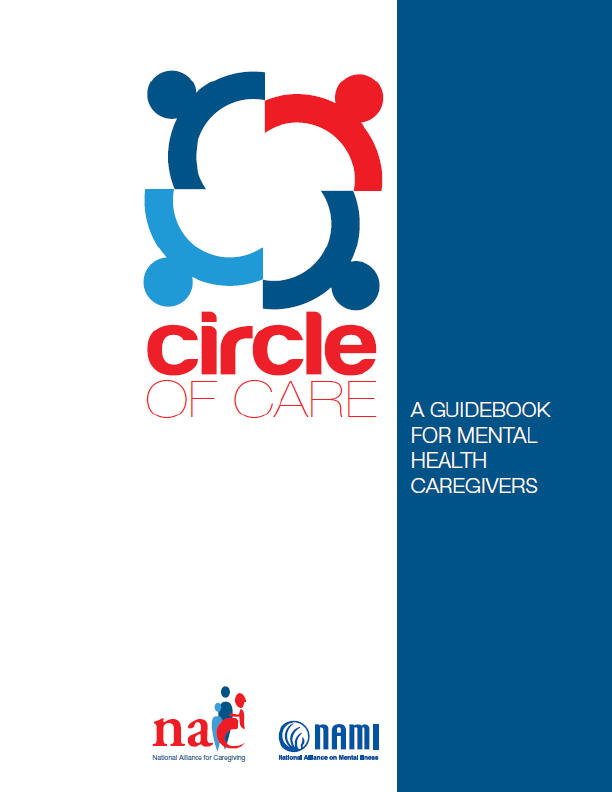What is COVID-19 or coronavirus?
COVID-19 is a very infectious respiratory disease caused by the SARS-CoV-2 virus. Very few children and young people with COVID-19 infection go on to have severe disease. There is no cure for COVID-19 although some newly tested treatments do help to reduce the risk of complications.
The NHS is offering COVID-19 vaccine to children and young people aged 12 to 17 years. Young people at greater risk of serious illness if they catch COVID-19 will need 2 doses of vaccine, 8 weeks apart. All other young people will be offered 2 doses of vaccine 12 weeks apart.
For most children and young people COVID-19 is usually a milder illness that rarely leads to complications. For a very few the symptoms may last for longer than the usual 2 to 3 weeks. The vaccination will help to protect you against COVID-19. Currently the vaccine licensed for children and young people is the Pfizer vaccine. This is what you will be offered.
Will the vaccine protect me?
The COVID-19 vaccination will reduce the chance of you suffering from COVID-19 disease. It may take a few weeks for your body to build up some protection from the vaccine. You should get good protection from the first dose. Having a second dose should give you longer lasting protection. Like all medicines, no vaccine is completely effective – some people may still get COVID-19 despite having a vaccination, but this should be less severe. Further information is available on symptoms on NHS.UK. The vaccines do not contain organisms that grow in the body, and so are safe for children and young people with disorders of the immune system. These people may not respond so well to the vaccine but it should offer them protection against severe disease.
What about giving consent?
You will probably want to share information about the vaccine with your parents and discuss it together. If you are being offered the vaccination at school, you may be given a consent form that your parent/guardian should sign giving permission for you to have the vaccination. The school immunisation team will be able to answer any questions you may have.
Common side effects
Like all medicines, vaccines can cause side effects. Most of these are mild and short term, and not everyone gets them. With the vaccine we use in under-18s, side effects are more common with the second dose. Very common side effects include:
- having a painful, heavy feeling and tenderness in the arm where you had your injection. This tends to be worst around 1 to 2 days after the vaccination
- feeling tired
- headache
- general aches, or mild flu like symptoms
You can rest and take paracetamol (follow the dose advice in the packaging) to help make you feel better. Although feeling feverish is not uncommon for 2 to 3 days, a high temperature is unusual and may indicate you have COVID-19 or another infection. Symptoms following vaccination normally last less than a week. If your symptoms seem to get worse or if you are concerned, you or your parents can call NHS 111. Less common side effects Recently, cases of inflammation of the heart (called myocarditis or pericarditis) have been reported very rarely after COVID-19 vaccines. Most of these cases have been in younger men and usually a few days after the second vaccination. Most people recovered and felt better following rest and simple treatments.
Can you catch COVID-19 from the vaccine?
You cannot catch COVID-19 from the vaccine but it is possible to have caught COVID-19 and not have the symptoms until after your vaccination appointment. The most important symptoms of COVID-19 are recent onset of any of the following:
- a new continuous cough
- a high temperature
- a loss of, or change in, your normal sense of taste or smell If you have the symptoms above, stay at home and arrange to have a test
What to do next
Your record card will show the details of the first dose. You will be offered a second dose after 8 or 12 weeks. You will be advised on the right timing for your second dose to help give the best, and longest lasting protection for you.
If you are not well when your appointment is due
You should not attend a vaccine appointment if you are self-isolating or waiting for a COVID-19 test. Ideally you should wait 12 weeks after having a positive COVID-19 test or at least 4 weeks if you are at higher risk.
How is COVID-19 spread?
COVID-19 is spread through droplets breathed out from the nose or mouth, particularly when speaking or coughing. It can also be picked up by touching your eyes, nose and mouth after contact with contaminated objects and surfaces.
